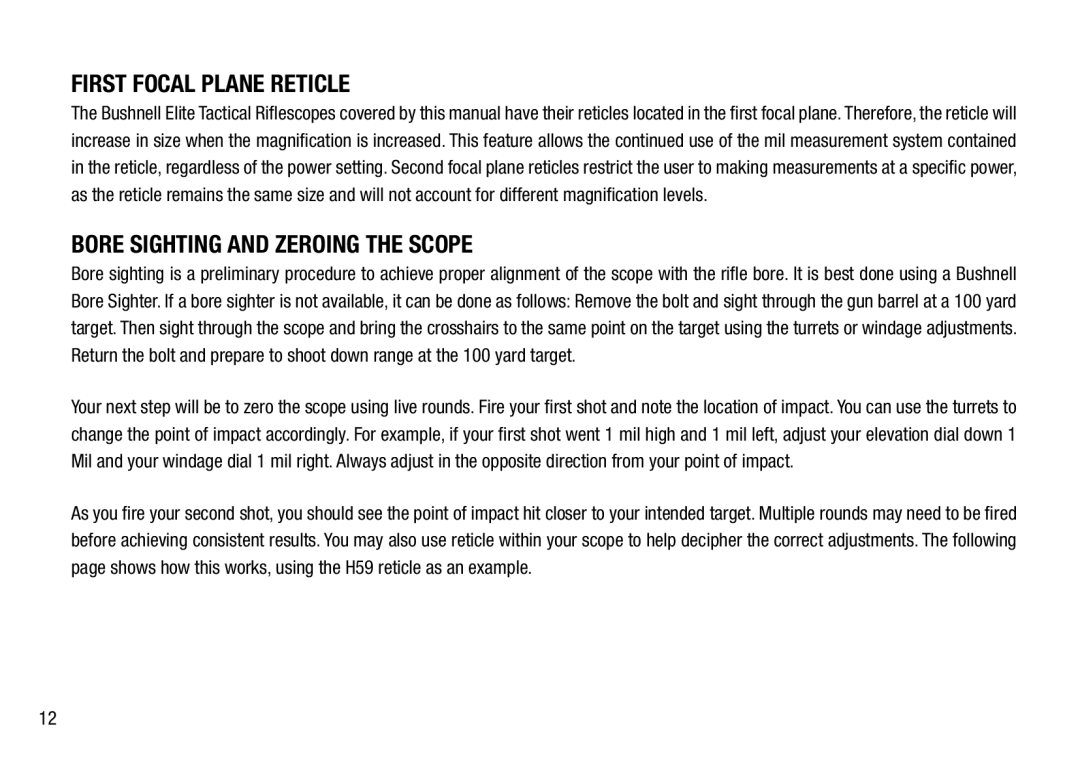First Focal Plane Reticle
The Bushnell Elite Tactical Riflescopes covered by this manual have their reticles located in the first focal plane. Therefore, the reticle will increase in size when the magnification is increased. This feature allows the continued use of the mil measurement system contained in the reticle, regardless of the power setting. Second focal plane reticles restrict the user to making measurements at a specific power, as the reticle remains the same size and will not account for different magnification levels.
Bore Sighting and Zeroing the Scope
Bore sighting is a preliminary procedure to achieve proper alignment of the scope with the rifle bore. It is best done using a Bushnell Bore Sighter. If a bore sighter is not available, it can be done as follows: Remove the bolt and sight through the gun barrel at a 100 yard target. Then sight through the scope and bring the crosshairs to the same point on the target using the turrets or windage adjustments. Return the bolt and prepare to shoot down range at the 100 yard target.
Your next step will be to zero the scope using live rounds. Fire your first shot and note the location of impact. You can use the turrets to change the point of impact accordingly. For example, if your first shot went 1 mil high and 1 mil left, adjust your elevation dial down 1 Mil and your windage dial 1 mil right. Always adjust in the opposite direction from your point of impact.
As you fire your second shot, you should see the point of impact hit closer to your intended target. Multiple rounds may need to be fired before achieving consistent results. You may also use reticle within your scope to help decipher the correct adjustments. The following page shows how this works, using the H59 reticle as an example.
12
